#FSYALIT Girls Like Me Don’t: Thoughts on Things I Can’t Forget by Miranda Kenneally, a guest post by Katelyn Browne
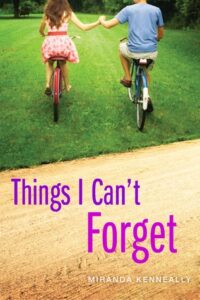 I moved a lot growing up. “A different school every other grade” kind of a lot. It’s usually the first thing I tell people when I’m trying to explain why I am the way I am, or why I can’t just tell you where I’m from.
I moved a lot growing up. “A different school every other grade” kind of a lot. It’s usually the first thing I tell people when I’m trying to explain why I am the way I am, or why I can’t just tell you where I’m from.
That’s one thing that makes me very different from Kate Kelly, the narrator of Miranda Kenneally’s Things I Can’t Forget. Kate has lived in Tennessee her whole life, in a close-knit Christian community. (Because this is the third book in a loosely connected series, Kenneally is able to make the community feel smotheringly small—everywhere we turn, there’s a character or a plot point from a past or future Hundred Oaks book.) She doesn’t know anyone who’s not Christian. Kate herself is deeply, devoutly, intensely Christian.
ADVERTISEMENT
ADVERTISEMENT
And that’s where we’re the same, Kate and I. (Kate and Kate—we share a name, too.) Because right after I’ve explained that I’m not from anywhere, my next go-to explanation is “Oh, and I was intensely religious as a teen.”
“Learning is never a bad thing. And neither is changing your mind about things…It’s always good to reevaluate. To think and consider all sides.”
― Miranda Kenneally, Things I Can’t Forget
Intense is the only right word for it. During middle school and high school, I was always at church: Sunday school, Sunday services, church band practice, Bible study, youth group, leadership training. I went to all the extra holy days, fasted for 40 Hour Famine, served a silent shift in the dark for an Easter prayer vigil. I ran my own peer Bible study for a year and made all my friends come and listen to canned presentations about abortion and smoking and homosexuality. I went on retreats, swimming trips, and mall scavenger hunts. And I went to church camp.
My church camp didn’t look like the one where Kate spends her summers. Cumberland Creek is a true summer camp, where children come and stay in cabins and our teen heroes serve as their counselors. My youth group did the conference-style camps, where we would spend a week on a college campus somewhere, getting saved and playing Ultimate Frisbee. In alternate years, we went on mission trips instead. But the wild mishmash of emotional, hormonal teen summers and the distinctive structures of camp that dominate this book feel so familiar to me.
When I offered to write a post for #FSYALit, I mentioned off-hand that this was the only YA book I’ve ever read that really felt like the religion I’d lived. At the time, I thought it was mostly because of the camp aspect, because of those summer evenings feeling close-but-not-close-enough to Jesus while sitting close-but-not-too-close to your friends. (I was always intellectually engaged with religion, but camp was where I prayed the sobbing, convulsing, born-again prayers that mark evangelical youth.)
“Free will comes with sacrifice. And sometimes with heartache.”
― Miranda Kenneally, Things I Can’t Forget
Upon reread, I realized that this book had stuck to my bones because of the pervasive sense of shame. There’s a special breed of shame, mixed with guilt, rolled up with judgment and righteousness that haunted me as a teenager—and that haunts me still—that I’d never seen anyone talk about in quite the right way.
Those feelings are stamped all over this book. In Kate’s world, religious truth and cultural standards are very closely intertwined. The first sentence of the book is “Girls like me do not buy pregnancy tests,” and it quickly becomes clear that Kate knows a lot of things that girls like her—like us—don’t do. She’s dismayed when she learns of Christian peers who belong to fraternities and sororities; who are gay; who go to parties; who have sex. Later on, she encapsulates what the teen experience looked like for those of us who were fully in the thrall of self-righteousness mixed with total fear: “I missed out on a lot because I was scared other kids would be drinking or doing drugs or having sex, and I didn’t want to be around that. And because no boys ever invited me.”
Before the book begins, Kate has helped her best friend, Emily, get an abortion. Now, in hindsight, she’s sure that she’s sinned in an almost unforgivable way, and a significant amount of the text is devoted to constantly wondering about her standing with God.
Kate’s shame deepens as she develops romantic—and sexual—feelings for her co-counselor and old friend Matt. She has the usual modesty culture guilt about feeling any kind of want and desire. (Julie Stivers read a draft of this post for me and wondered where the moral line was, in dating relationships, when I was a teen. I went to a church that was okay with dating other like-minded Protestants as long as you were just kissing—but even then, it felt like you could cross a line as soon as you started to like it too much.) Kate’s uncertainty about enjoying her make-out sessions with Matt is summed up in a such a succinct, pointed, perfect way: “I felt so good inside it felt wrong.”
The shadow of Emily’s abortion complicates these shameful feelings. Kate certainly judges Emily for getting an abortion, and she hates herself for helping her. But even more than that, Kate judges Emily because she had sex with her boyfriend, Jacob, in flagrant defiance of everything they knew to be morally correct. Kate takes assurance from the knowledge that she wasn’t at all complicit in that sin, and that she would never fall the way Emily has. Her belief in her own moral superiority (and her disdain and pity for Emily) nearly destroys their friendship in a way that demonstrates the utter failure of “love the sinner, hate the sin.”
“I have a billion what-ifs and no way forward.”
― Miranda Kenneally, Things I Can’t Forget
As an adult, as a secular person, as a reader, I want to sit Kate down and say, look. You did the best thing; you loved your friend; you helped her when she was afraid. Your God should love that. You don’t need to be forgiven, and you need to stop punishing Emily.
But I know that it’s not that easy. And if you work with evangelical teens, or other teens whose worlds are defined by rules, by right and wrong and very few shades of grey, I hope you know that, too. Like Kate, I said and thought and did immensely hurtful things to my friends and acquaintances in the name of the truth. Sometimes, I got a chance to make amends; other times, I didn’t.
Kate ends the book with an intact, but changed, relationship with God and with her own ideas about faith. A concerned friend says, “I feel like you’re getting to know yourself better, and that’s a good thing.”
Because I spent so much of my adolescence squashing parts of myself that were sinful or worldly or otherwise not of God, that’s something I’m still working on. I’ve gotten to know myself better every time I’ve read Things I Can’t Forget, and I hope some evangelical teens will find themselves in it, too.
ADVERTISEMENT
ADVERTISEMENT
I know that this book would have made me deeply uncomfortable as a teen—I learned about God (and chaste romance between married people) from church-library books from Christian publishers. When I met characters who had had abortions, or who were gay, or who gave in to their carnal desires, they were always in secular books and they were never evangelical.
Kenneally’s book is a bit of each; it very much exists in the tradition of secular YA fiction, and it comes from a secular publisher. It’s also a book that takes teenage faith very seriously and recognizes that Kate’s faith in God, even when shaky, is central to her life.
Depending on your community, it could make for a difficult handsell. But I think it’s such an important book for evangelical teens who also like romance stories, as well as for teens who live in places where evangelical morality seems distant and cartoonish. As in many Christian romances, Kate’s relationship with a boy is compared and contrasted with her relationship with God—but here, both relationships and the questions they evoke are treated as valid. Near the end of the book, Kate is still trying to decide what to do about Matt. She wonders, “Is it healthy to have a love like that anyway? A love where you throw aside all caution and dive right in?”
It’s an important question, particularly if you’re coming into adulthood and trying on relationships. And I don’t think it’s a question that only pertains to boyfriends.
Meet Our Guest Blogger
Katelyn Browne (or @brownekr, to the Twitter world) works as a school librarian in Washington, DC. These days, she hangs out with Quakers, but she still knows all the words to an awful lot of Christian rock songs.
Publisher’s Book Description:
Kate has always been the good girl. Too good, according to some people at school—although they have no idea the guilty secret she carries. But this summer, everything is different…
This summer she’s a counselor at Cumberland Creek summer camp, and she wants to put the past behind her. This summer Matt is back as a counselor too. He’s the first guy she ever kissed, and he’s gone from a geeky songwriter who loved The Hardy Boys to a buff lifeguard who loves to flirt – with her.
Kate used to think the world was black and white, right and wrong. Turns out, life isn’t that easy.
Published by Sourcefire Books in 2013
For more discussions of Faith and Spirituality in YA Lit, check out our Hub
Filed under: #FSYALit, Faith, Miranda Kenneally, Spiritual Life, Spirituality
About Karen Jensen, MLS
Karen Jensen has been a Teen Services Librarian for almost 30 years. She created TLT in 2011 and is the co-editor of The Whole Library Handbook: Teen Services with Heather Booth (ALA Editions, 2014).
ADVERTISEMENT
ADVERTISEMENT
SLJ Blog Network
2024 Books from Pura Belpré Winners
In Memorium: The Great Étienne Delessert Passes Away
Winnie-The-Pooh | Review
Parsing Religion in Public Schools
ADVERTISEMENT



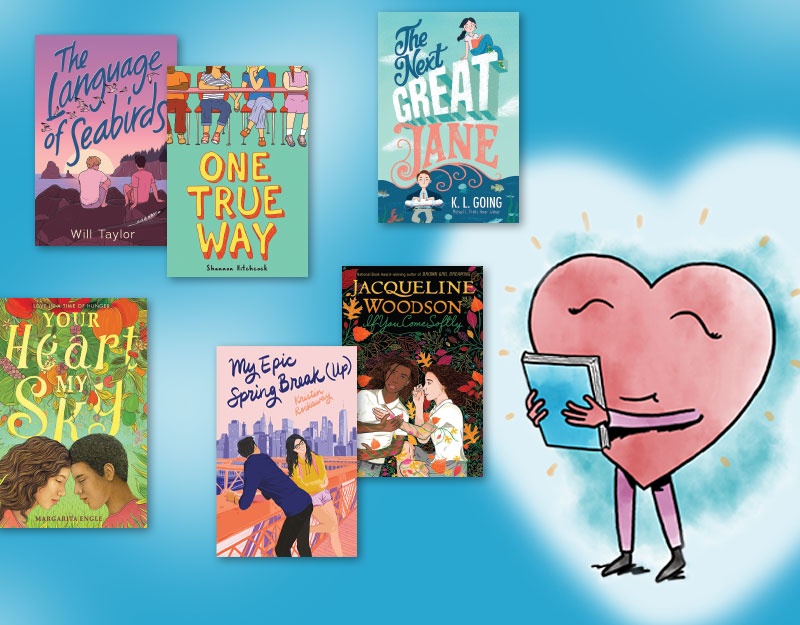
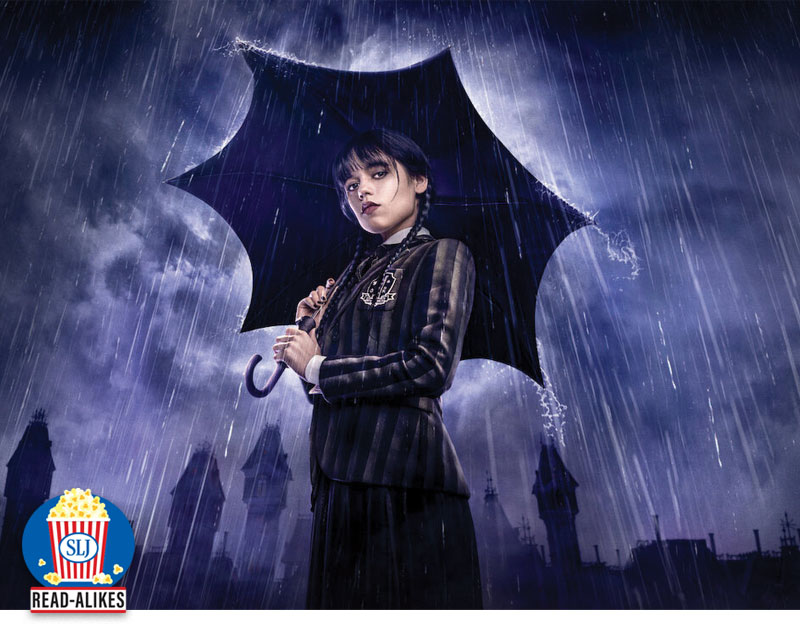

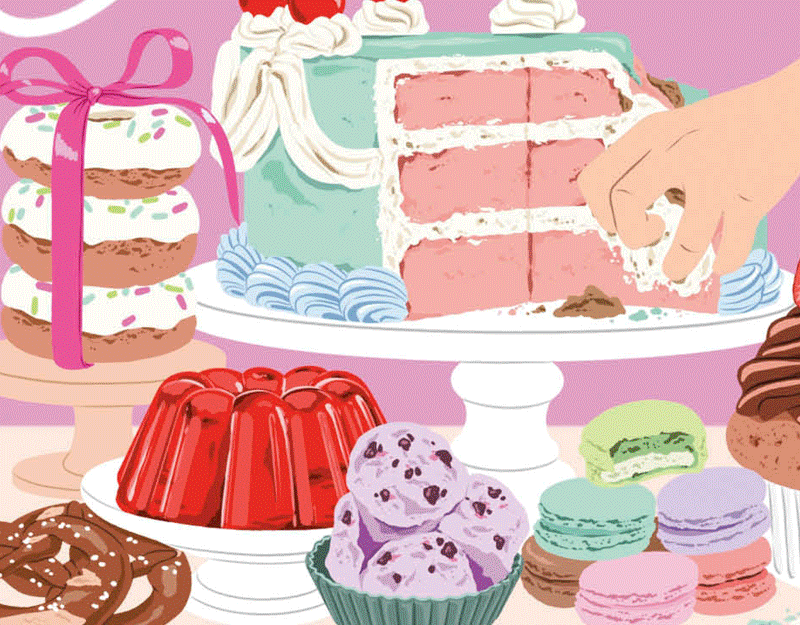
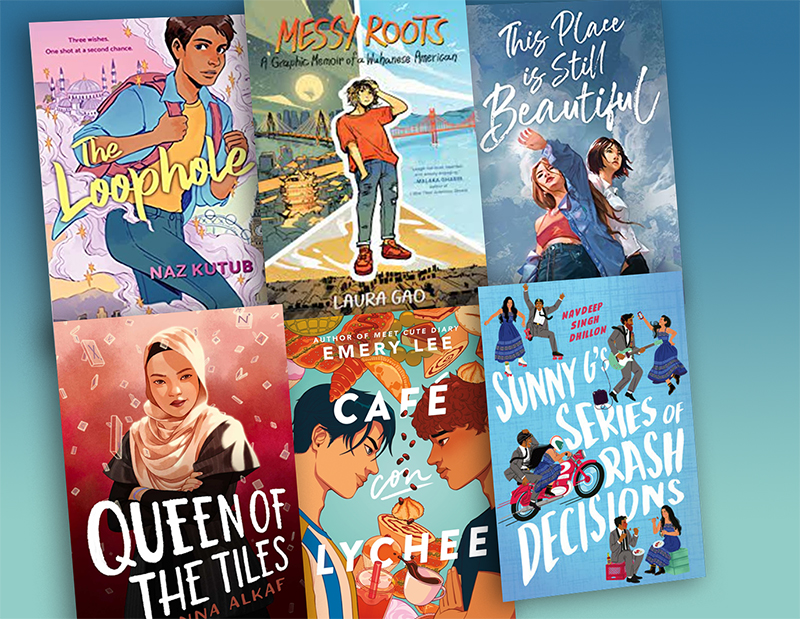
I’m with Sourcebooks Fire, Miranda’s publishers. I just wanted to say what a beautiful and moving essay this was. Kate, thanks so much for taking the time to share your thoughts about this book, and sharing your own story.
Thanks, Heather! I’ll admit that I find the cover of this book TOTALLY inscrutable (though cute!), but I love everything else about it. And I really appreciate that Sourcebooks Fire was up for publishing such a religion-driven book in the middle of an otherwise-mostly-not series.